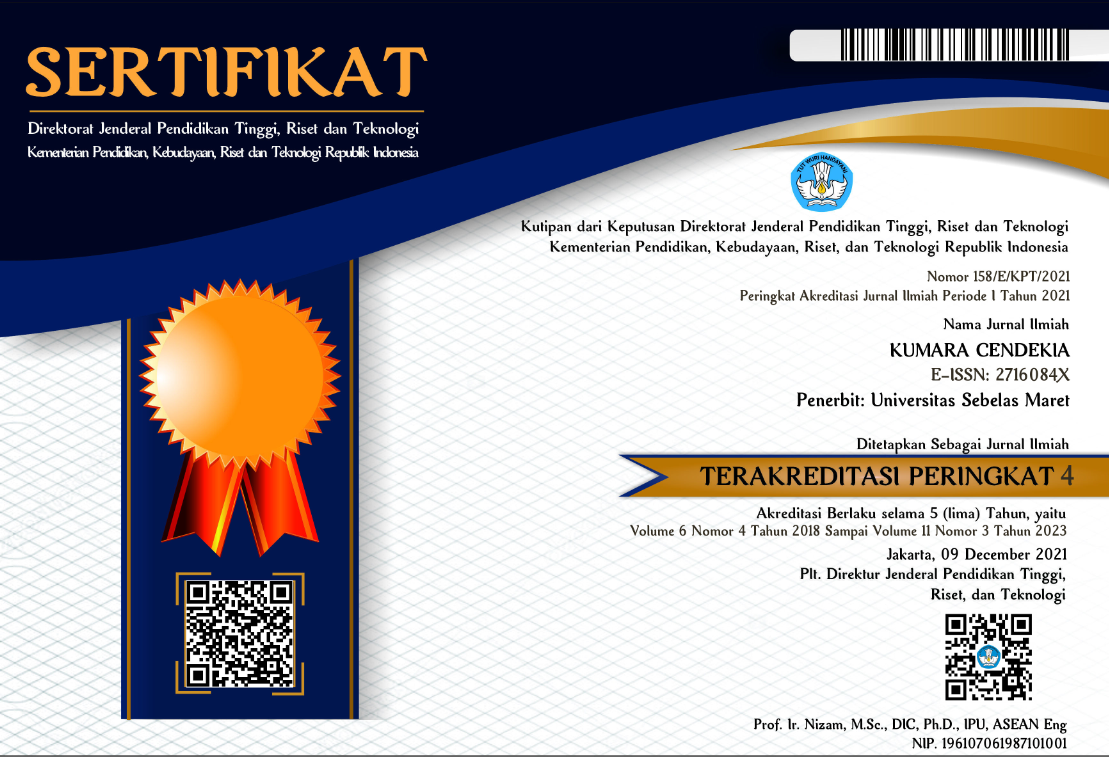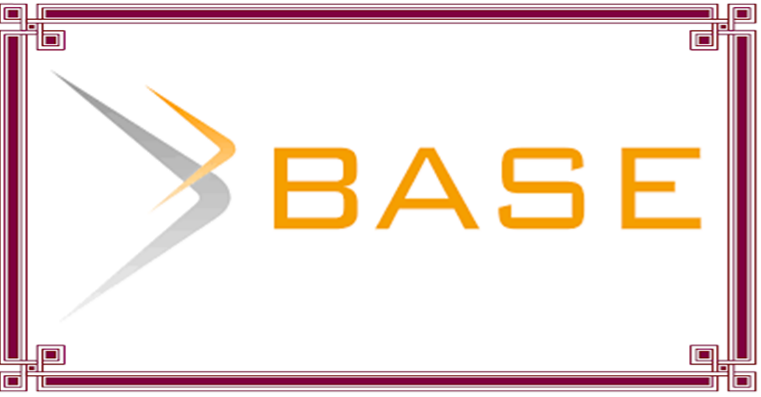PENGARUH TEKNIK TOKEN ECONOMY TERHADAP PERILAKU PROSOSIAL ANAK USIA 4-5 TAHUN
Abstract
Penelitian ini bertujuan untuk mengetahui pengaruh teknik token economy terhadap
perilaku prososial anak usia 4-5 tahun. Penelitian ini merupakan penelitian kuantitatif quasi eksperimen dengan desain nonequivalent control group design. Sampel penelitian adalah 5 anak usia 4-5 tahun di TK An Nahl Cemani. Metode pengumpulan data menggunakan observasi dalam bentuk checklist untuk mengukur perilaku prososial pada anak. Analisis data menggunakan independent sample t-test dengan bantuan SPSS 15 for windows. Hasil penelitian menunjukkan bahwa terdapat pengaruh penggunaan teknik token economy terhadap perilaku prososial anak usia 4-5 tahun.
Kata Kunci: token economy, perilaku prososial, anak usia dini
Full Text:
PDF (Bahasa Indonesia)References
Baron, R. A. & Byrne, D. (2003). PsikologiSosial, Jilid II. EdisiKesepuluh. Jakarta: Erlangga.
Beaty, J.J. (2014). ObservasiPerkembanganAnakUsiaDini. Terj. ArifRakhman. Jakarta: Prenada Media.
Doll, C., McLaughlin, F.T., Barreto, A. (2013). The Token Economy: A Recent
Review and Evaluation. International Journal of Basic and Applied Science,
(01), 131-149.
Gaik, P.L., Abdullah, C.M., Elias, H., &Uli, J. (2010). Development of Antisocial Behaviour. Procedia Social and Behavioral Sciences, 7©, 383-388.
Gross, R. (2013). Psychology: The Science of Mind and Behaviour (Sixth Edition).
Terj.Helly P. S, dan Sri M. S. Yogyakarta: Pustaka Pelajar.
Ihiegbulem, O.T., Ihiegbulem, V. N., Igwebuike, D. (2011). The Effect of Token
Economy on Academic Achievement of Secondary School Student:
Implications for Counseling. Proceeding ot the 2011 International
Conference on Teaching, Learning and Change. Omoku: Federal College of
Education.
Mercer, J. & Clayton, D. (2012).Psikologi Sosial. Terj. Noermalasari Fajar Widuri. Jakarta: Erlangga.
Paulus, M., Licata, M., Kristen, S., Thoermer, C., Woodward, A., &Sodian, B. (2014). Social Understanding and Self-Regulation Predict Pre-Schoolers Sharing with Friends and Disliked Peers: A Longitudinal Study. International Journal of Behavioral Development, 1-12.
Smith, K. (Ed). (1995). Introduction to Positive Ways of Intervening with Challenging Behavior. Minneapolis:Institute on Community Integration
Wentzel, K. (2015). ProsocialBehaviour and Schooling. Encyclopedia on Early Childhood Development. USA: University of Maryland at College Park.
Zlomke, K., &Zlomke, L. (2003). Token Economy Plus Self -Monitoring to Reduce Disruptive Classroom Behaviors. Behavior Analyst Today, 4(2), 177-182.
Refbacks
- There are currently no refbacks.












